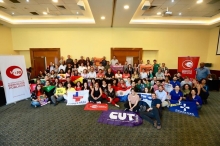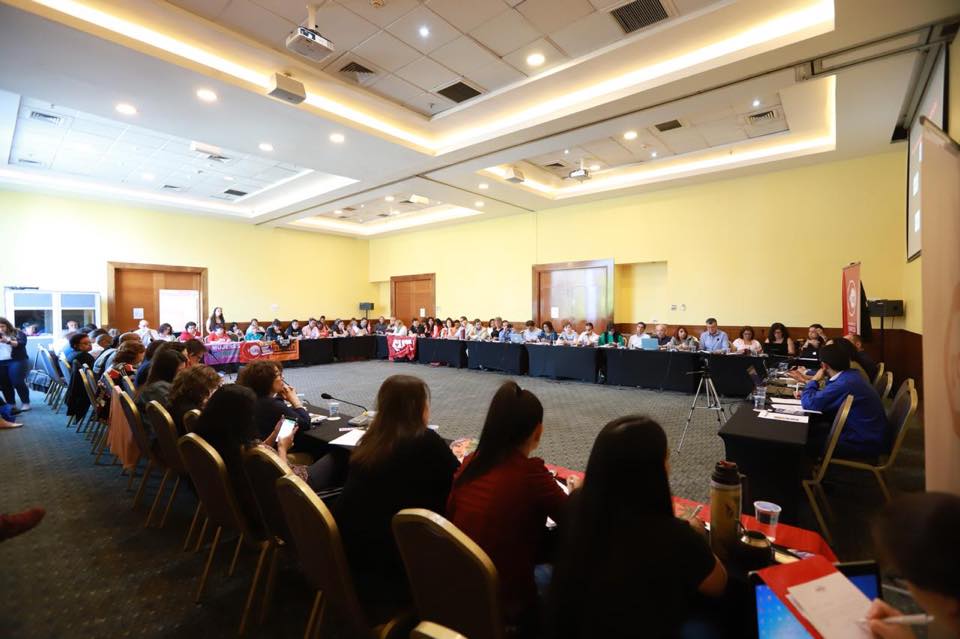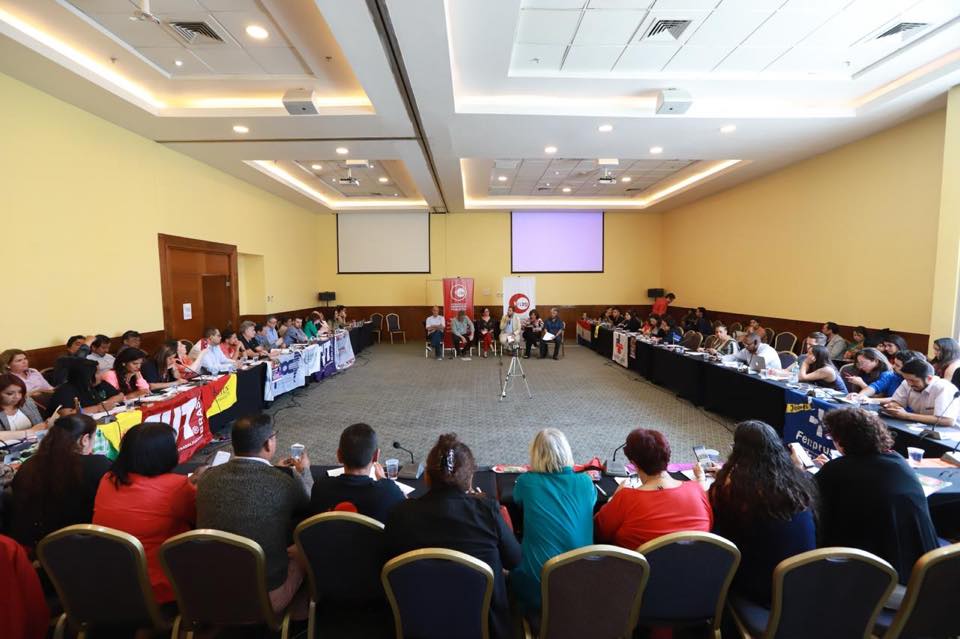PSI Interamerica Regional Conference: The Future of Work and Ending Violence and Harassment in Public Services

More than 90 trade unionists from Latin America, Canada and the Caribbean participated in PSI’s Regional Conference "The Future of Work & Ending Violence and Harassment in the Public Service" between November 5 and 7 in Santiago, Chile. Carolina Espinoza, Southern Cone representative on the Interamerican Regional Executive Committee of PSI (IAMREC), Jocelio Drummond, PSI Regional Secretary, Mabel Batista, specialist in workers activities at the ILO and Chile’s Minister of Labour and Social Security, Nicolas Monkeberg all participated in the opening of the conference.


On the third day participants focussed specifically on the ILO Convention on Violence and Harassment in the World of Work and discussed collective strategies for the ILO’s 2019 International Labour Conference (ILC). The final part of the conference was dedicated to the elaboration and approving of conference declarations on the future of work and ending violence and harassment in the world of work of public services.
“We categorically declare that there is no future of work without discussing the present world of work. There is no dignity at work in the future without dignity in the present. We support the immediate promotion of decent work, the effective fulfillment of the International Labour Conventions, and respect for human and labour rights at work for everyone, all over the world ... It is fundamental to state the centrality of public services as a response to citizens’ access of employment and decent work. Without public services that provide the material source for realization of their fundamental human rights, there are no guarantees for integration into the labour market under equal conditions, "says the statement on the future of work.
In turn, the statement on violence and workplace harassment states:
"We assume with conviction and pride that in the current moment women of the international trade union movement have undertaken to create an instrument that addresses gender-based violence. The current moment is the synthesis of struggle that has led to debate and the possible adoption of a Convention and Recommendation to address Violence and Harassment in the World of Work at the International Labour Organization (ILO). These efforts are premised on the notion that violence is a transversal and systemic factor in the world of work.
The debate about violence in all its varied manifestations has expanded in form and content to the point where it has transcended its status as a ‘gender issue’ to become a priority for the entire union movement. This is in addition to the fact that we are active and connected in national and international political contexts of attacks on our rights against which we have fought continuously and even lost lives. The historic responsibility of making this instrument a reality in normative terms within the framework of the ILO's Centennial (2019) debates puts us before the International Trade Union Confederation (ITUC), the ILO and the rest of the world as the Workers' Group, as Global Unions and as PSI. We have an excellent opportunity to recover the political initiative and move to the counter-offensive in the debates about the world of work while maintaining our capacity for both dialogue and mobilization."
Declaration on the future of work: english / español
Declaration on ending violence and harassment in the world of work of public services: english / español

